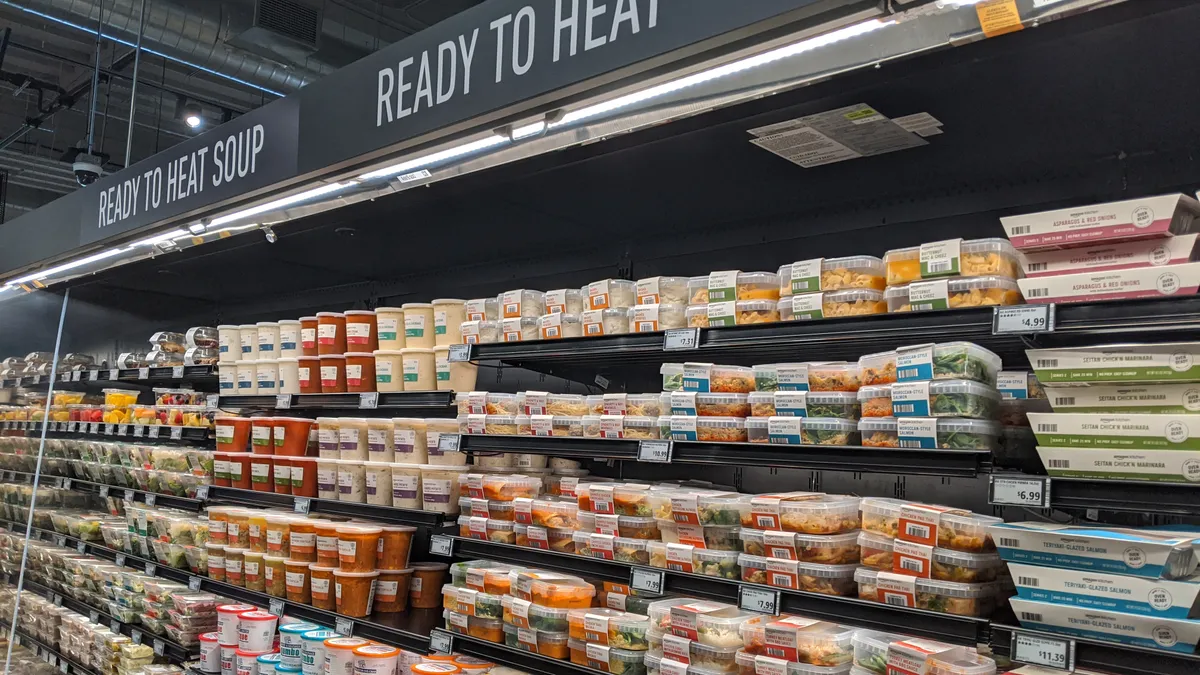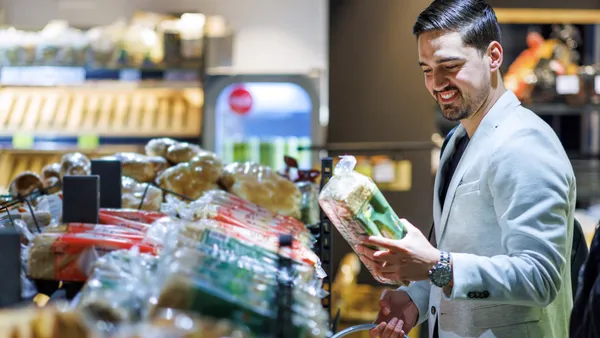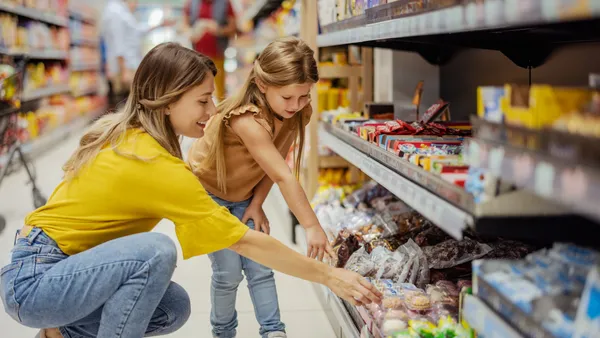Dive Brief:
- Amazon has banned a number of "chemicals of concern" from its Amazon Kitchen brand packaging that research has linked to negative health and environmental impacts, including PFAS (per- and polyfluoroalkyl substances), phthalates and BPA (bisphenol A), the company announced on Tuesday.
- Many of the banned substances have been linked to elevated risks for certain types of cancers, higher cholesterol, pregnancy complications, reduced vaccine effectiveness and other serious health issues. The Amazon Kitchen ban comes five months after the retailer was accused in a class action suit filed in California federal court of using PFAS compounts in private label plates labeled as compostable.
- The substances will be restricted from the Amazon Kitchen brand sold in Amazon Go, Go Grocery and Fresh stores as well as Fresh delivery, but is not a wholesale ban across other Amazon private label or brand-name products.
Dive Insight:
Amazon Kitchen brand suppliers are also being asked to phase out other bisphenols and the plastics polyvinyl chloride, polystyrene and expanded polystyrene. These add to a chemicals policy the company established in 2018, and which also includes restrictions under its private label baby, beauty, cleaning and personal care products as well as brand-name paint-removal products.
PFAS chemicals, which are listed under the Amazon Kitchen ban and which have been linked to certain types of cancer, developmental effects and other severe health issues, have received closer attention from consumers and retailers alike in recent years. State legislatures in Washington, Maine, and New York have all passed phase-out measures of PFAS in food packaging that are set to take effect by 2023.
Fast-casual restaurant chains Chipotle and Sweetgreen this year promised to eliminate PFAS from their compostable salad bowls, after a 2019 investigation by The Counter drew scrutiny to the brands’ food containers. Class action lawsuits against Amazon and Kroger alleging that materials claiming to be compostable in fact contain PFAS compounds are pending in California federal courts.
After Safer Chemicals, Healthy Families and Toxic-Free Future published a report in 2018 that found wide prevalence of PFAS at grocery stores, Whole Foods Market and Trader Joe’s both pledged to take stricter action on toxins in their packaging and Whole Foods removed all packaging that had been found to contain PFAS traces.
PFAS and other so-called "forever chemicals" are useful for water and stain resistance, which appeals to food packaging manufacturers. According to Consumer Reports, a number of QSRs, including McDonald’s and Wendy’s, use packaging that has been treated with PFAS, which experts say can migrate into water and food supply once they're thrown away.
Amazon’s chemical policy commitments include a pledge to encourage its suppliers to replace hazardous chemicals with greener alternatives as defined by the Environmental Protection Agency.












